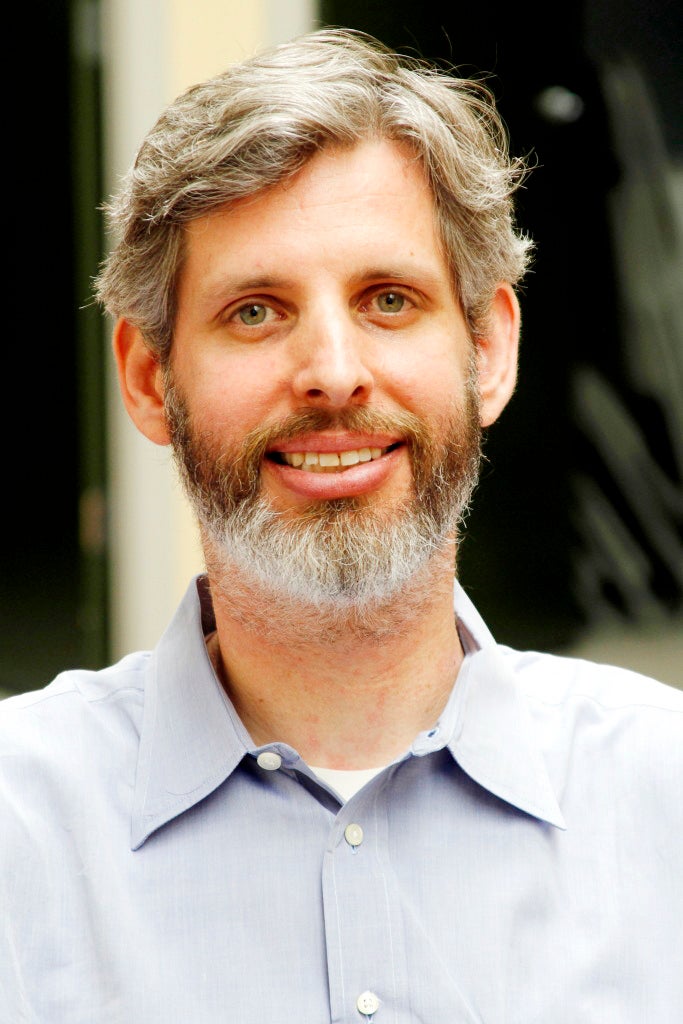Harvard Law School’s WilmerHale Legal Services Center—one of the leading providers of legal aid in Greater Boston and surrounding communities—has announced that Daniel Nagin, Clinical Professor of Law, will be its Faculty Director.
Nagin succeeds Clinical Professor of Law Robert Greenwald, who has served as the director of LSC since 2009, and will devote his time fully to his health policy work as Faculty Director of the law school’s Center for Health Law and Policy Innovation, which will house both the law school’s health and food law and policy clinics.
“The Legal Services Center tackles essential needs in the Greater Boston community while offering students opportunities to serve to learn from talented and dedicated staff,” said Martha Minow, dean of Harvard Law School. “Robert Greenwald’s inspired leadership has strengthened and deepened the Center’s outstanding community collaborations. He has led staff and students in their work on behalf of survivors of domestic abuse, people facing eviction and predatory lending, and individuals seeking disability benefits and health care. Robert has at the same time built our nationally recognized center and clinic on health law and policy innovation to which he will now devote his full-time leadership.
“We are so lucky that his successor is Dan Nagin, an award-winning advocate, inspired teacher, and leader in clinical legal education,” Minow added. “Dan has long worked to expand access to quality legal services for persons who are homeless, poor, or disabled and he recently created the Veterans Law and Disability Benefits Clinic at the Center. It is a privilege to watch how the vision and tireless efforts of these lawyers advance justice and inspire the next generation of lawyers.”
Greenwald said he has been very fortunate to work at the LSC for more than 20 years and in recent years to serve as its faculty director. “The dynamism and innovation that are the hallmarks of the LSC have made it an exciting place to work. At the LSC, staff and students protect and advance the liberties and rights of clients who would not otherwise have access to the legal system. While leaving the LSC is difficult, it is bittersweet, as HLS has given me the great opportunity to create a new center that has emerged out of my years of providing and overseeing direct service to clients living with HIV and other chronic health conditions.”
At CHLPI, Greenwald will lead efforts to educate and train Harvard Law School students in systems-level legislative and regulatory advocacy to improve the health of underserved populations, particularly low-income people living with chronic illnesses and disabilities. CHLPI faculty, staff and students will work to expand access to affordable, high-quality healthcare and nutritious food; to reduce health disparities, and promote more equitable and effective healthcare and food systems.
Nagin joined the HLS faculty in June 2012 as a Clinical Professor of Law and as director of community-based lawyering at HLS’s Legal Services Center. He said, “It is an absolute privilege to work with the outstanding team at LSC and the exceptional law students who enroll in our clinics. I look forward to continuing LSC’s remarkable legacy as a site for innovation in lawyering and clinical teaching.”
Located at the crossroads of Jamaica Plain and Roxbury in the City of Boston, LSC is Harvard’s community-based clinical law program. Through four clinical offerings—the Family Law/Domestic Violence Clinic, the Predatory Lending/Consumer Protection Clinic, the Post-Foreclosure Eviction Defense Housing Clinic, and the Veterans Law and Disability Benefits Clinic—numerous pro bono initiatives, and dynamic community collaborations, LSC provides essential legal services to low-income residents of Greater Boston while training students in practical lawyering skills and cutting-edge advocacy strategies.
